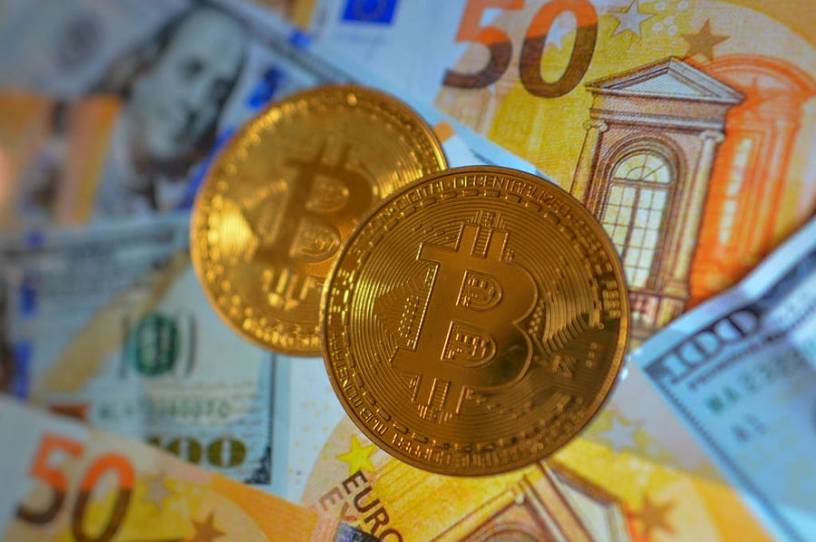It’s Time to Stop Giving Crypto Companies a Pass

In response to growing concerns, including from U.S. sanctions officials that Vladimir Putin and his oligarch allies might look to cryptocurrency to conceal their financial movements, two bills—one in the House, sponsored by Rep. Brad Sherman (D-Calif.), the other in the Senate, sponsored by Sen. Elizabeth Warren (D-Mass.)—would authorize the president to impose financial sanctions on any digital asset trading platform that provides services to a sanctioned Russian person or entity.
The pro-crypto lobby is unhappy, and has reportedly spent $460,000 to oppose the legislation. While the decision to side with Putin and his allies risks significant reputational damage for a burgeoning industry desperate for Washington’s legitimization, it should also serve as a wake-up call to congressional Republicans to stop giving crypto companies a pass.
“These bills don’t target Russian oligarchs, who aren’t using (& can’t use) crypto to evade sanctions,” declared the policy director for the Blockchain Association, a lobbying group representing more than 70 crypto platforms. The statement is not true. Crypto can be used for sanctions evasion, and sanctions have always been applied to platforms that knowingly enable or facilitate sanctionable transactions. Indeed, Russian crypto abuses are nothing new.
Russia has emerged as a haven for cybercriminals who live on the digital decentralized ledger known as the blockchain, and it’s already the third-largest cryptocurrency miner in the world. Russia is a hub for “ransomware-as-a-service” providers who operate on the dark web, often with the connivance or even support of Putin’s regime. Now, as traditional bank compliance programs shut down the oligarchs’ ability to move funds, cryptocurrency platforms are an attractive conduit for sanctions evasion.
Why then is the pro-cryptocurrency lobby so blatantly denying reality and opposing sanctions intended to put even more pressure on Putin and his allies?
The banking sector managed to adapt to this kind of legislating over the past two decades. After the 9/11 attacks, Congress passed legislation holding banks accountable for money laundering and terror finance happening under their noses. That, combined with the Treasury Department’s development of financial sanctions authorities and an explosion of congressionally mandated sanctions targeting banks doing business in places like Iran, led to a massive investment in compliance software, systems, and personnel by the financial industry.
Crypto, however, is still in its infancy. Understanding that laws and regulations forcing onerous standards on transparency and preventing illicit activity on its platforms could upend its market strategy and depress investment, the crypto industry is pushing back on efforts to hold it accountable.
Until now, part of the attraction for virtual-currency users has been the relative anonymity of certain digital assets—the ability to mask identities and move money absent government oversight or intervention. Which is why terrorist organizations, cartels, human traffickers, cybercriminals, and run-of-the-mill money launderers have often looked to Bitcoin and other cryptocurrencies to facilitate their illicit operations.
The Treasury Department is keenly aware of the illicit-finance challenges posed by cryptocurrencies. Last year, Treasury published its first sanctions compliance guideline for the virtual currency industry and has since targeted wallets and exchanges tied to ransomware attacks. In April, the department imposed sanctions on a crypto miner in Russia and just last week announced its first-ever sanctions targeting a “virtual currency mixer”—a technology that makes it even harder to track the origin, destination, and counterparties of blockchain transactions.
As cryptocurrency use grows, so will the need for tighter anti-money laundering and sanctions rules targeting exchanges, wallet providers and other digital asset platforms. In March, President Joe Biden issued an executive order directing key national security agencies to develop a comprehensive strategy to keep America safe and hold our enemies accountable in the evolving digital asset space. Congress, which has historically enacted new sanctions in the face of myriad threats on a bipartisan basis, should be part of that process, too.
It’s true Sherman and Warren’s bills need improvement, including a standard for sanctions to be imposed only if virtual currency platforms know or should have known about illicit activity in their midst—the same standard applied to banks. But their overarching direction is correct—and Congress needs to lead in designing sanctions for the age of digital assets, not just with respect to Russia.
Republicans should help their Democratic colleagues improve their proposals, and get on the right side of policymaking in the face of crypto’s national security challenges. As Putin’s crimes against humanity continue in Ukraine, no one should get a pass—least of which platforms designed to conceal identities and make illicit finance that much easier.
Richard Goldberg, a former National Security Council official, is a senior adviser at the Foundation for Defense of Democracies and host of “Cryptonite,” a podcast on cryptocurrency policymaking.